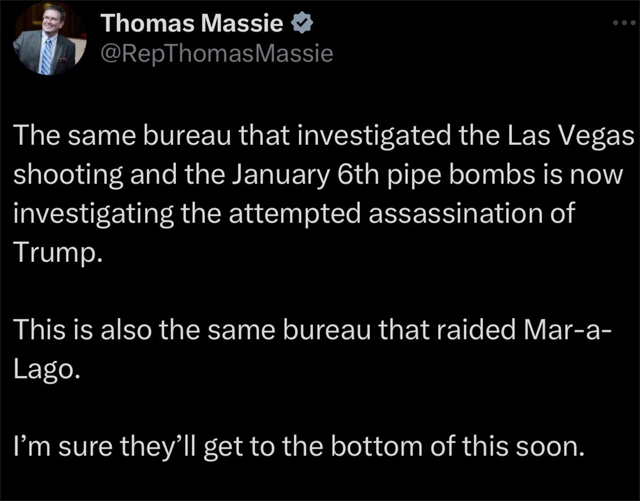"The Resistance"
Nations, clubs, tribes - almost all forms of human associations - need their
unifying myths. None are absolutely true. But some are more un-true than others.
by Bill Bonner
Poitou, France - "Victors write history. And they give themselves leading roles in it. Then, with only their own lies for reference, they turn into numbskulls.
Immediately after WWII, US officers interviewed captured German soldiers as well as the civilian population. They were amazed to find almost none said they were Nazis. Within weeks after their surrender, the Nazis had vanished from German history. Most people said they were always against them... and only put on uniforms, or otherwise supported the war effort, because they had to.
Likewise, in France, after a short period of score settling and collaborator-shaming, visitors discovered that almost everyone had been a member of the French resistance - apparently, the whole population had been bravely fighting the German usurpers. And so it was that yesterday, France’s national holiday, the flags unfurled and the ‘anciens combattants’ assembled in our little village to honor the local heroes of the resistance, 1940-1945.
Source: Bill Bonner
The old soldiers - there couldn’t have been more than a dozen of them - were appropriately bedecked with campaign ribbons. There were veterans of the Indo-China wars (in which the French fought to avoid Vietnamese independence)... and there were veterans of the Algerian war (in which France tried to keep the Algerians on the leash). The last WWII veteran from the village must have already bit the dust; none were present.
Still on hand, however, was a doughty WWII-era Jeep. There was no marching band to head up the procession; instead, the Jeep led the way, with a speaker mounted on the back. As another reminder of America’s lost industrial might, two GMC trucks, also of WWII vintage, joined the promenade.
Source: Bill Bonner
At precisely 11:15, someone turned on the music and the parade began. Flags waving, the mayors, prefects, gendarmes, and local big-wigs... all set out down the little lane towards the center of town, trailed by a solemn crowd of gawkers and patriots. Arriving at the town square, the officials lined up according to rank... the goodest and greatest in the front... the lesser grades behind them... and the hoi polloi, including your editor, on the fringes.
There must be some law that requires public officials to speak at events such as these but forbids them from saying anything meaningful. We heard from politicians, military leaders, and local busybodies. All had the same message; that if it had not been for the courage and determination of the “maquis” (resistance fighters with their headquarters hidden in the woods, whom the Germans saw as ‘terrorists’) France would not be the free country it is today... and we’d be listening to speeches in German, drinking beer rather than wine, and paying our bills on time.
But WWII, like WWI, was won by manpower and firepower. The resistance fighters had very little of either. As for becoming more like the Germans, the French lost the Franco-Prussian War in 1870; after the surrender, no attempt was made to change the language, drinking preferences, or credit scores. France boomed, quickly paying its war debts – in gold.
But nations, clubs, tribes - almost all forms of human associations - need their unifying myths. None are absolutely true. But some are more un-true than others. Surveys show both Americans and Brits, by large majorities, believe that it was their own soldiers who defeated Hitler. But it is not even close to the truth. The Soviet Union pulled off a remarkable ‘double envelopment’ at Stalingrad and wiped out 800,000 German, Italian, Hungarian and Romanian troops. After that, German forces were fighting a losing battle... with an incompetent fantasist as their commander-in-chief.
Back in France, a majority of the population supported the Vichy government and its peaceful settlement with the Germans. Many people hoped the Germans would win the war against the Soviets, whom they regarded as a worse menace. And among the ‘maquis,’ confusion, violence, and claptrap ran wild. In the countryside around here, the WWII era was a dark episode... and all the cats were gray.
“It really was not much like they pretend it was,” says an 87-year-old friend. “The best organized of the resistance groups were the communists. They didn’t take their orders from de Gaulle in London, but from Stalin in Moscow. And they hated anyone they regarded as ‘bourgeois.’ There were also groups of thieves... and some far-right militia. So, when armed men came to your house, you didn’t know who they were or what they would do. Sometimes they would just steal your car... saying they were commandeering it for the resistance. But sometimes it was much worse.
They rounded up a group of people from [the neighboring town] and executed them. For a long time, we didn’t know what had happened to them, but then their bodies were found in the river. Nobody seemed to know who had done it, or why. And my neighbors up the road... they would never talk about it, but the maquis came and apparently did unspeakable things. The daughter, who was a teenager at the time, was never quite right after that.” Stay tuned..."





.jpeg)





























